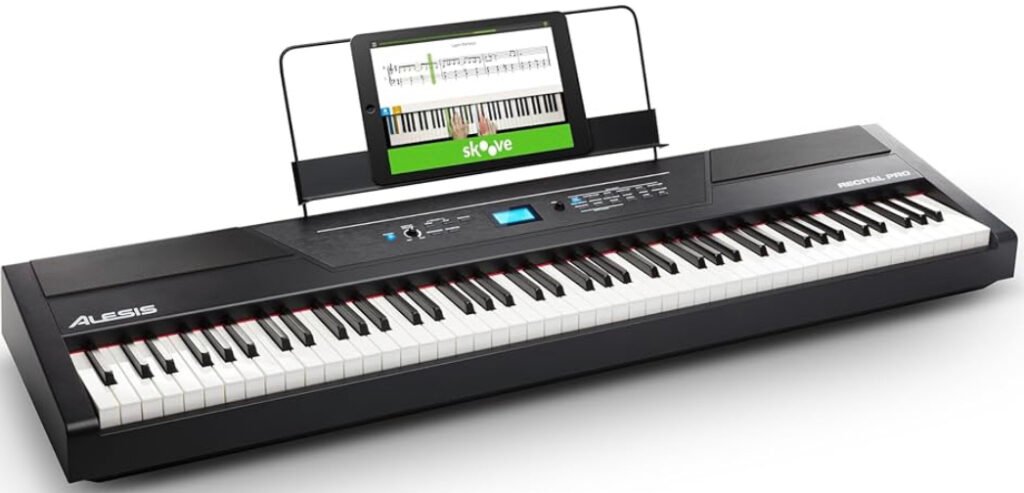Piano keyboards have gained immense popularity, appealing to both beginners and professional musicians. With advancements in technology, these keyboards now offer features that closely mimic traditional pianos while adding digital enhancements. Choosing the right keyboard is crucial, as it affects practice, performance, and overall enjoyment.
This article aims to guide readers through the best piano keyboards, discussing key features, user needs, and top model recommendations. By the end, readers will have a clearer understanding of which keyboard best fits their musical journey and personal preferences.

When selecting the best piano keyboards, it’s essential to consider several key features and how they relate to your personal needs. Here’s a breakdown of the criteria that will guide our recommendations:
Key Features to Consider
Number of Keys: Standard pianos have 88 keys, but keyboards can range from 25 to 88 keys. More keys offer greater versatility, but a smaller keyboard may be more portable and sufficient for beginners.
Weighted vs. Unweighted Keys: Weighted keys mimic the feel of an acoustic piano, providing a more authentic playing experience. Unweighted keys are lighter and often preferred by electronic musicians.
Sound Quality and Polyphony: The richness of sound and the number of notes that can be played simultaneously (polyphony) are critical. Look for keyboards with high-quality sound engines and at least 64-note polyphony for complex pieces.
Connectivity Options: Modern keyboards often feature MIDI and USB connectivity, allowing you to connect to computers, tablets, and other devices for music production or learning software.
Built-in Features: Consider what additional features are important, such as metronomes, recording capabilities, and onboard effects, which can enhance your playing experience.
User Needs
Beginners vs. Advanced Players: Beginners may benefit from keyboards with built-in learning tools, while advanced players might prioritize sound quality and advanced features.
Portability vs. Full-Size Models: If you travel frequently or perform on stage, a lightweight, portable model might be ideal. In contrast, a full-size model offers the authentic feel and sound of an acoustic piano.
Budget Considerations: Establish your budget early. There are excellent options available across all price ranges, so it’s important to find a balance between features and affordability.
Top Picks
Best Overall Keyboard
Model Name: Yamaha P-125
- Specifications: 88 weighted keys, Pure CF sound engine, 192-note polyphony, Bluetooth connectivity.
- Pros: Realistic piano feel, excellent sound quality, compact design.
- Cons: Limited onboard sounds compared to competitors.
- Ideal for: Intermediate to advanced players who need a reliable instrument for practice and performance.
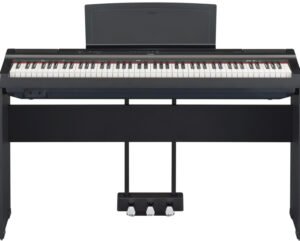
Best Budget Keyboard
Model Name: Casio Privia PX-160
- Specifications: 88 weighted keys, AiR sound source, 128-note polyphony, built-in speakers.
- Pros: Affordable, good sound quality, lightweight.
- Cons: Fewer advanced features, basic connectivity options.
- Ideal for: Beginners and casual players looking for quality without breaking the bank.

Best Portable Keyboard
Model Name: Korg microKEY 37
- Specifications: 37 mini keys, USB-powered, compatible with iOS devices.
- Pros: Extremely portable, great for on-the-go musicians, good build quality.
- Cons: Mini keys may not suit everyone, limited features.
- Ideal for: Mobile musicians and producers who need a compact solution.
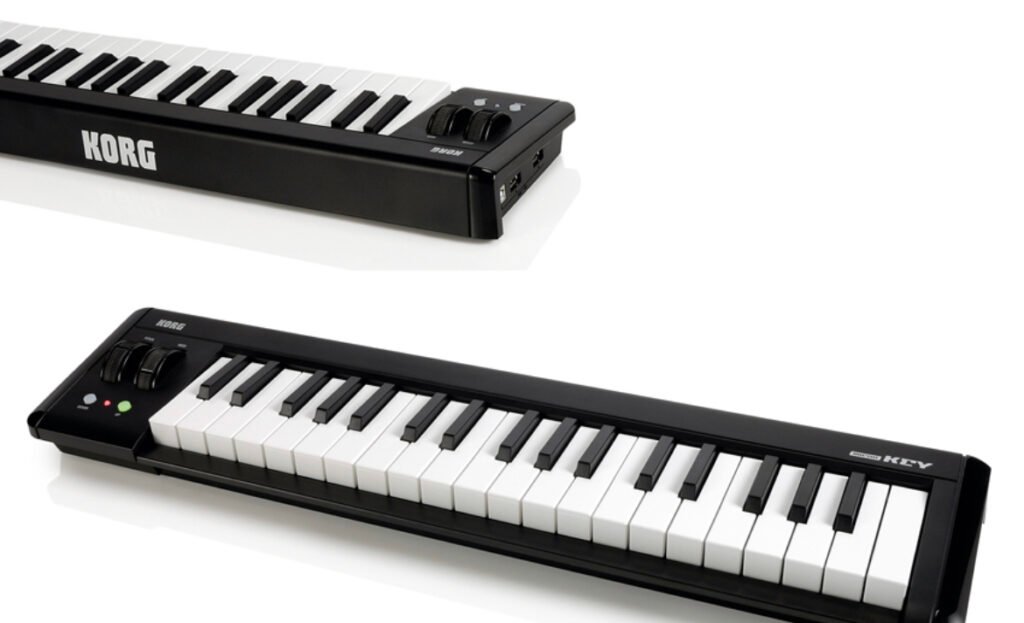
Best for Beginners
Model Name: Alesis Recital Pro
- Specifications: 88 semi-weighted keys, 12 built-in voices, 128-note polyphony.
- Pros: Affordable, educational features, user-friendly interface.
- Cons: Sound quality is decent but not exceptional.
- Ideal for: New learners seeking an easy-to-use keyboard with educational tools.
Best for Professionals
Model Name: Nord Stage 3
- Specifications: 88 fully weighted keys, multiple sound engines, advanced effects, extensive connectivity.
- Pros: Superior sound quality, unparalleled performance features, lightweight for a stage piano.
- Cons: High price point.
- Ideal for: Professional musicians requiring a versatile instrument for live performance and studio work.
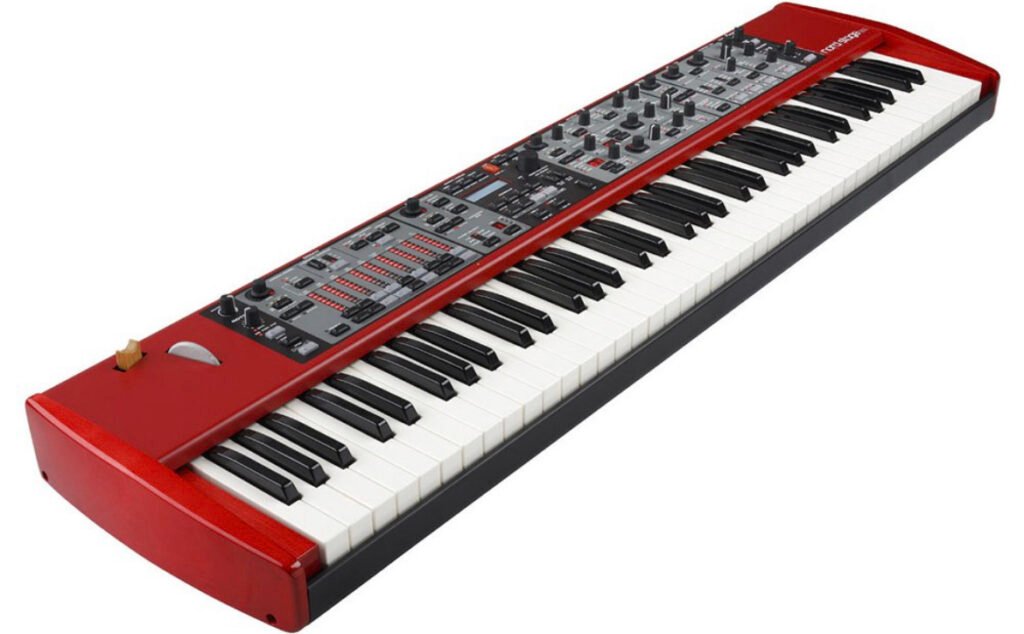
Best Digital Piano
Model Name: Roland RD-2000
- Specifications: 88 weighted keys, advanced sound engine, dual sound capability, 128-note polyphony.
- Pros: Exceptional sound quality, professional features, versatile for live performances.
- Cons: Higher price point, heavier weight.
- Ideal for: Professional performers and serious enthusiasts looking for a stage-ready instrument.
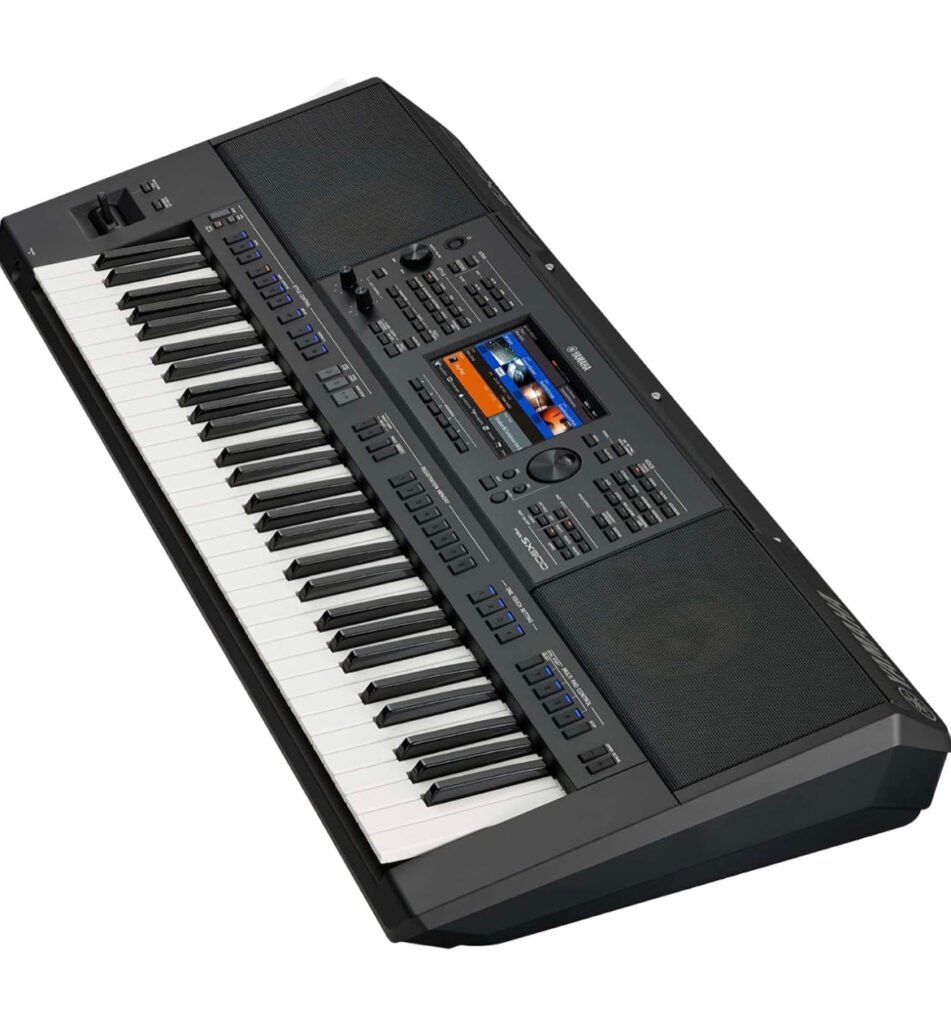
Conclusion
Choosing the right piano keyboard is a vital step in your musical journey. Whether you’re a beginner, an intermediate player, or a professional, understanding your needs and the available features will guide you in making an informed decision. From the exceptional Yamaha P-125 to the budget-friendly Alesis Recital Pro, there’s a perfect keyboard for everyone.
As technology continues to evolve, we see a trend toward keyboards that not only replicate the acoustic piano experience but also incorporate innovative digital features. This makes it an exciting time for musicians, whether you’re practicing at home or performing on stage.
Take your time to explore your options, consider the features that matter most to you, and find a keyboard that inspires you to play. Your perfect piano awaits!

